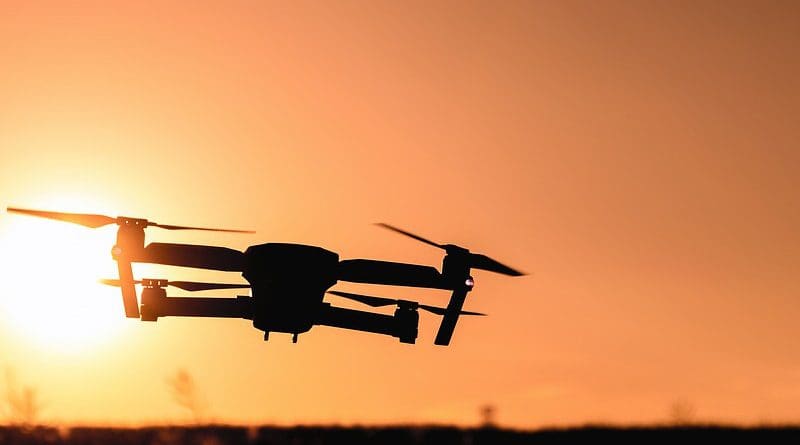Alex Willemyns

Chinese-made drones could pose a national security risk to the United States due to laws in China that force companies to provide authorities access to user data, two U.S. agencies say in a new memo.
These “unmanned aircraft systems,” or UAS, are often used by operators of critical infrastructure in the United States without regard to the data they may be sending to Chinese servers, according to the memo from the FBI and the new Cybersecurity and Infrastructure Security Agency.
That puts security and economic interests at risk by potentially exposing vulnerabilities in key infrastructure or the details of intellectual property to China’s intelligence services, and could also put key networks at risk of cyber-attack, the agencies say in the memo.
The 2017 National Intelligence Law, the memo says, “compels Chinese companies to cooperate with state intelligence services,” including by providing access to all user data collected anywhere in the world.
“This includes prominent Chinese-owned UAS manufacturers that the Department of Defense has identified as ‘Chinese military companies’ operating within the United States,” it says, adding that the 2021 Data Security Law then introduced “strict penalties” for non-compliance.
The data is essential, it says, to China’s Military-Civil Fusion strategy, “which seeks to gain a strategic advantage over the United States by facilitating access to advanced technologies and expertise.”
An statement released by the FBI and CISA says the agencies understand that drones “reduce operating costs and improve staff safety.” But instead of Chinese-made drones, it suggests alternatives “that are secure-by-design and manufactured by U.S. companies.”
Drone wars
It’s not the first time that U.S. federal agencies have warned of the dangers of Chinese-made drones, with the Army in 2017 banning the purchase of drones from heavyweight Chinese manufacturer DJI, which has denied working closely with China’s government.
U.S. senators in 2022, meanwhile, expressed alarm about “swarms” of Chinese-made drones flying over restricted airspace in Washington, while a Homeland Security official said in 2018 that “hundreds” of drones had violated restrictions meant to protect the president.
In April, Rep. Elise Stefanik, a Republican from New York who chairs her party’s House caucus, and Rep. Mike Gallagher, a Republican from Wisconsin who chairs the House Select Committee on China, called for DJI to be banned from using U.S. communications channels.
“Over 50% of drones sold in the U.S. are made by Chinese-based company DJI, and they are the most popular drone in use by public safety agencies,” the pair said. “It has been reported that the Chinese government is an investor in DJI, directly contradicting DJI’s public statements regarding their relationship with the Chinese government.”
More recently, Congress has moved to at least stop federally funded agencies from using Chinese-made drones in their operations.
Last month’s 2024 defense authorization bill included the American Security Drone Act of 2023, which bans the federal government and its agencies from procuring or using drones manufactured by Chinese firms or even “entities subject to influence or control by China.”
Expensive alternatives
The FBI and CISA memo says U.S. law enforcement agencies and private companies alike should consult the Department of Defense’s “Blue UAS Cleared List” for drones that are federally compliant.
However, many of the American-made drones are considered to be of lower quality and higher cost than their Chinese-made equivalents.
Stefanik and Gallagher said in a statement on Wednesday that it was clear the Chinese Communist Party was subsidizing China’s drone industry “to destroy American competition and spy on America’s critical infrastructure sites” and that a complete ban was needed.
“We must ban CCP-backed spy drones from America and work to bolster the U.S. drone industry,” the two lawmakers said.
Radio Free Asia’s mission is to provide accurate and timely news and information to Asian countries whose governments prohibit access to a free press. Content used with the permission of Radio Free Asia, 2025 M St. NW, Suite 300, Washington DC 20036.
No comments:
Post a Comment